Study sheds light on sense of touch
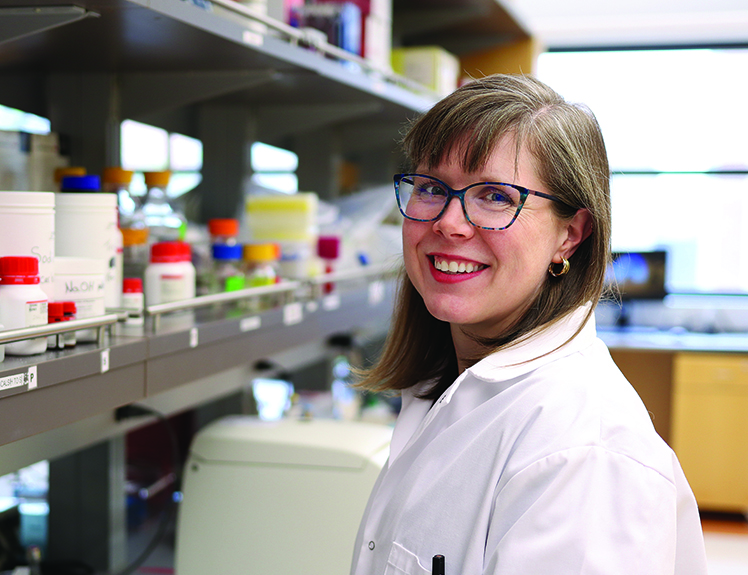 A recent study led by Jillian Stobart [B.Sc.(Hons.)/06, PhD/12], assistant professor of pharmacy, revealed that brain cells called astrocytes fine-tune brain circuits that process the sense of touch.
A recent study led by Jillian Stobart [B.Sc.(Hons.)/06, PhD/12], assistant professor of pharmacy, revealed that brain cells called astrocytes fine-tune brain circuits that process the sense of touch.
The study, published in Nature Communications, was the first to find that astrocytes in the brains of mice used NMDA receptors when the sense of touch was activated.
In mice lacking astrocyte NMDA receptors, neuronal circuits were impaired and the mice had sensory problems with using their whiskers – the equivalent to humans using their fingers.
Using a “texture test,” Stobart’s team found that mice without astrocyte NMDA receptors struggled to identify different sandpapers when the textures were similar.
“Their sense of touch was not completely gone, but they had problems with acuity,” Stobart said.
The professor believes the findings hold significance for human neurological disorders.
“For example, patients with schizophrenia struggle with sensory impairments, including the processing of information from the sense of touch,” she said.
“Many of our research findings mimic how brain circuits operate in individuals with schizophrenia. It raises the possibility that astrocytes are the missing link in this disease.”
Air pollution research centre receives $4.8 million
A new UM lab will be Canada’s first multidisciplinary research centre at which biomedical, engineering, natural science and occupational health experts will study the effects of inhaled pollutants on health and disease.
The AirSAFE lab, announced in March, will be co-led by Andrew Halayko [M.Sc./88, PhD/97], professor of physiology/pathophysiology and Canada Research Chair in chronic lung disease pathobiology and treatment, and Dr. Neeloffer Mookherjee, professor of internal medicine. Both scientists are affiliated with the Children’s Hospital Research Institute of Manitoba.
The federal government contributed $2.4 million from the Canada Foundation for Innovation and the province $2.4 million from Research Manitoba for the project, totalling $4.8 million in support.
A 10-member team will investigate how air pollution affects health at all life stages. Unique facilities will allow for the controlled study of contaminants such as traffic-related pollution, smoke from wildfires or stubble burning, and tobacco, cannabis and e-cigarette vapours.
AirSAFE will be a centre of excellence, the announcement said, and will generate evidence to develop new policies for improving air quality and human health.
UM and B.C. researchers aim to advance wheelchair technology
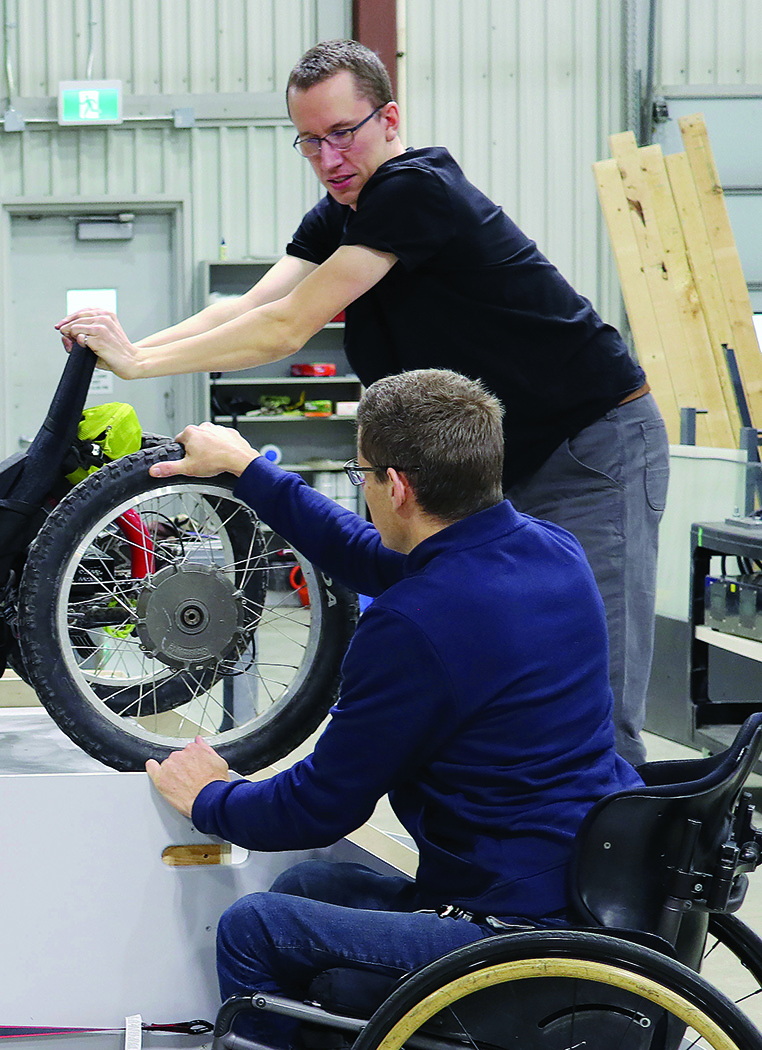
Jacquie Ripat [BMROT/92, M.Sc./98, PhD/11], professor of occupational therapy, has partnered with Dr. Jaimie Borisoff, a specialist in rehabilitation engineering design at the British Columbia Institute of Technology (BCIT), to research innovative methods of expanding wheelchair capabilities.
“We hope we can make wheelchairs go places where they can’t go right now – places like the beach, rough terrain and snowy areas,” said Borisoff, who represented Canada in wheelchair basketball at four Paralympics.
Future wheelchairs might even be able to handle difficult stairs and climb over obstacles, he said.
The two researchers recently obtained funding from the Canada Foundation for Innovation to investigate wheelchairs’ performance and study how the chairs can be modified. The funding will also allow them to expand their wheelchair test courses at BCIT and UM.
Few wheelchairs are currently designed to navigate the hurdles posed by the Canadian climate, said Ripat, who holds the Endowed Chair in Technology for Assisted Living at the College of Rehabilitation Sciences.
“People are using wheelchairs in very challenging conditions…. We’re interested in working with some of our rural, remote and northern partners to see how we can improve wheelchair mobility.”
First midwifery cohort graduates
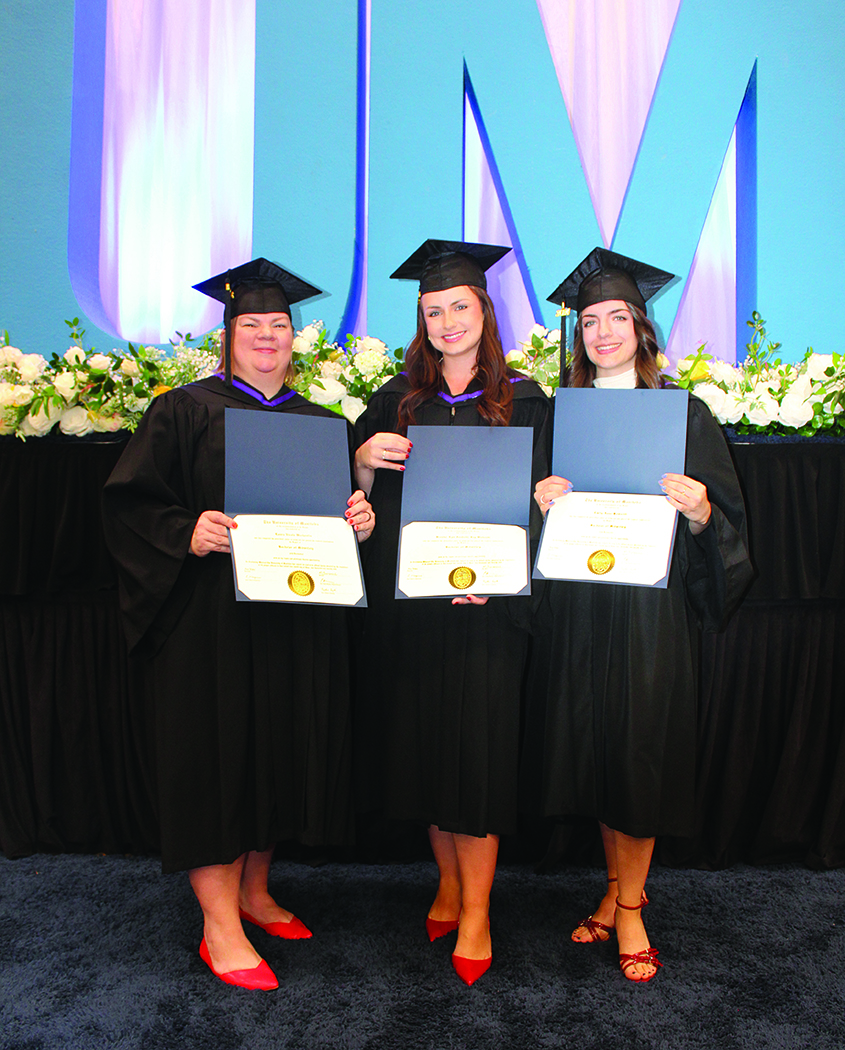
The first three grads to complete the bachelor of midwifery program at the College of Nursing received their degrees in June and officially entered the profession.
The midwifery program was launched in September 2021. There are currently 20 students enrolled, including three Indigenous students. Ten students are expected to graduate next year.
“Having this program reduces the need for Manitobans to travel outside of the province to pursue studies in midwifery. We hope to see our graduates working within the province and to see the profession grow,” program director Fleur McEvoy [BN/99, MN/21] said.
McEvoy noted that in 2021, about eight per cent of births in Manitoba were midwifery-led, compared to 20 to 25 per cent in Alberta and British Columbia.
Graduate Brooke-Lyn Wahoski [BMid/24] said she considered studying nursing before she learned about the program.
“Midwifery wasn’t really talked about when I was growing up. When I heard about the program … I thought it aligned with my values,” she said.
“It’s an important line of work and creates a safe space for pregnant people and their families.”
Professor made impact as salivary scientist
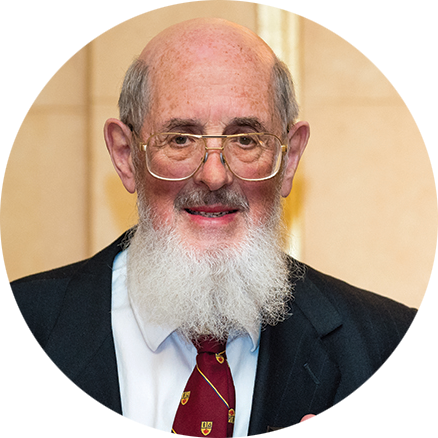 Dr. Colin Dawes, a respected faculty member of the Dr. Gerald Niznick College of Dentistry, passed away in April at the age of 88.
Dr. Colin Dawes, a respected faculty member of the Dr. Gerald Niznick College of Dentistry, passed away in April at the age of 88.
The British-born professor joined the fledgling oral biology department in 1964 and became an international authority on the role of saliva in oral health.
As of 2019, he was the most-published salivary researcher in Canada.
In the 1970s, Dawes’ research revealed that unstimulated saliva flow naturally peaks at about 5 p.m. each day. In the 1980s, he published a mathematical model of how saliva clears sugar from the mouth.
One of Dawes’ most-cited discoveries, made in 1971, is that when saliva flow drops to 40 to 50 per cent of a person’s normal rate, the sensation of “dry mouth” is felt. He was the first in the world to quantify this.
Dawes, who served as editor of the Journal of Dental Research from 1983 to 1993, retired in 2004 but remained active as professor emeritus until 2019.
Indigenous youth call for ‘auntie style’ health care
In a report released in February, Indigenous youth who took part in a community roundtable in Winnipeg called for health services to be delivered “auntie style.”
As described by the youth (ages 19 to 29), this would mean that health systems and health workers would be rooted in the concept of kinship and provide culturally safe care.
“We walk into a hospital and expect to be discriminated against,” was a typical experience described by the Indigenous youth, who said they often delay seeking care until their illness or injury becomes an emergency.
Findings from the report show a need for more Indigenous health workers, as well as more Indigenous-led care and spaces. The report calls for all health-care staff to be held accountable for treating everyone with dignity.
The roundtable was one component of the national OurCare survey, which heard from nearly 10,000 Canadians about their experiences and aspirations for a better primary care system.
Amanda Condon [B.Sc./01, B.Sc.(Med.)/06, MD/06], head of family medicine at the Max Rady College of Medicine, was an OurCare Manitoba co-lead. Indigenous community leader Michael Redhead Champagne hosted the roundtable.
Read the Manitoba Indigenous Youth Report on the OurCare website https://bit.ly/3z1F4rQ.
Don’t put Indigenous populations under one umbrella: speaker
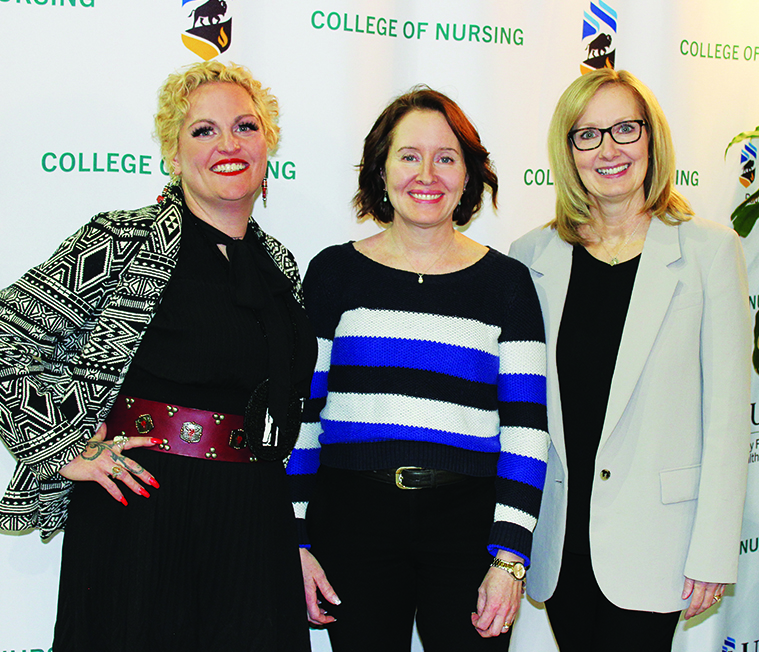
When discussing Indigenous health in Manitoba, researchers and health professionals must consider the distinctions between First Nations, Inuit, Métis and the urban Indigenous population, a PhD student at the College of Nursing told attendees at a conference in March.
“A pan-Indigenous umbrella is not going to work in the province when we talk about health and health systems planning,” Stephanie Van Haute [MN/21] said.
Van Haute, a Métis woman and registered nurse, is a patient services director for the Indigenous health program at the Winnipeg Regional Health Authority. She spoke at the 14th annual Advanced Practice Nursing Conference hosted by UM’s Graduate Nursing Students’ Association.
“For those wanting to work with First Nations or Indigenous communities, be humble,” she said. “Start learning the impacts of historical and ongoing colonial efforts that have led to systemic mistrust. Indigenous people are the experts in their own health.”
The Advanced Practice Nursing Conference was the first to be held in person since 2020. It also featured presentations by Cindy Fehr [B.Sc./99], CEO of the Nurse Practitioner Association of Manitoba, and Lisa Merrill [BN/07, MN/11], co-chair of the Provincial Clinical Nurse Specialist Network.
Pharmacy grad students provide mutual support

For pharmacy graduate students in need, help is just a phone call away.
“It doesn’t matter if it’s day or night. You just call,” said PhD student Nitesh Sanghai, coordinator of the peer-to-peer student group in the College of Pharmacy.
The group was started by grad students, for grad students.
This year, a core group committed to ensuring that a supportive ear is available
24 hours per day.
“We want to see each other succeed,” said Sanghai. “We want to empower each other.”
Students might dial up a peer for academic, emotional or cultural support. Sanghai gives the example of himself not knowing, as an international student, how he should speak to UM professors.
“In India and in many other Asian countries, you say ‘Sir.’ You would never address them by their name. But [I learned that] here it’s OK.”
Peer-to-peer participants receive training from UM Student Services so they can recognize when professional help is needed.
“I’m so proud of these students,” said Dr. Lalitha Raman-Wilms, dean of pharmacy. “This exemplifies the compassion, empathy and leadership we want to see in all our learners.”
Dentistry prof awarded prestigious chair
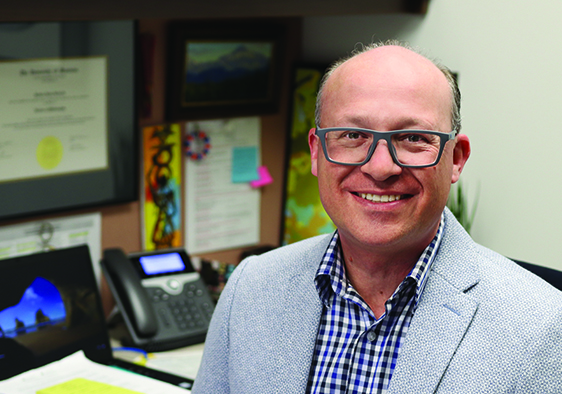 Robert Schroth [DMD/96, M.Sc./03, PhD/11], professor of preventive dental science and researcher with the Children’s Hospital Research Institute of Manitoba, has been awarded a six-year Applied Public Health Chair by the Canadian Institutes of Health Research.
Robert Schroth [DMD/96, M.Sc./03, PhD/11], professor of preventive dental science and researcher with the Children’s Hospital Research Institute of Manitoba, has been awarded a six-year Applied Public Health Chair by the Canadian Institutes of Health Research.
“This highly competitive, $1.2-million chair recognizes Dr. Schroth’s excellence in research aimed at improving equitable access to oral health care for children,” said Anastasia Kelekis-Cholakis [DMD/92,Dip. Perio/98], dean of dentistry.
Schroth is an international expert on early childhood caries (tooth decay). He aims to improve the oral health status of young children in Canada by focusing on ways to improve access to early risk assessment, prevention and care, particularly for children facing social and economic inequalities.
As the chair holder, his research priorities include two projects. One involves evaluating the implementation of the Canadian Caries Risk Assessment Tool, a screening tool designed for non-oral health professionals to assess the risk of tooth decay in children under six. The tool was developed by Schroth’s team.
The other project is evaluating the impact of the interim Canada Dental Benefit and the new Canadian Dental Care Plan on children’s access to oral health care.
Fellowship gives boost to sleep medicine in Manitoba
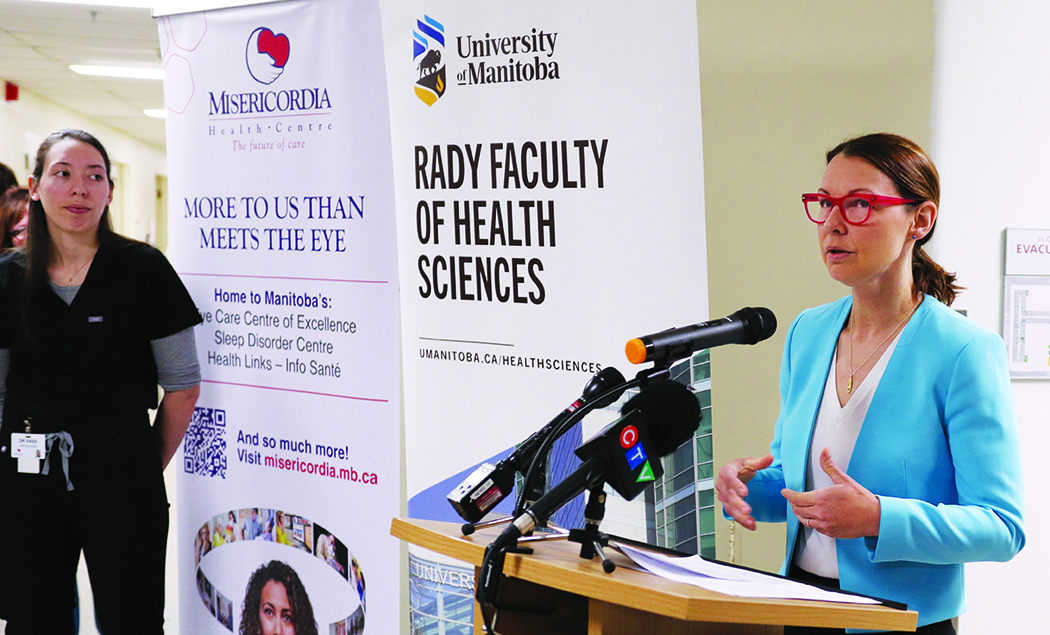
A new fellowship is making it possible for more Manitoba patients to be assessed and treated for sleep disorders, UM and the Misericordia Health Centre announced in April.
The Royal College of Physicians and Surgeons of Canada recently accredited the section of respirology at UM – part of the department of internal medicine – to start training one fellow per year to be certified in the sub-specialty of sleep medicine.
UM is one of six Canadian universities – including the University of British Columbia, University of Calgary, McMaster University, University of Ottawa and Western University – to receive this new accreditation. Previously, certification in sleep medicine was not available in Canada.
“Being able to offer this fellowship increases the number of physicians at the provincial Sleep Disorder Centre at Misericordia Health Centre from seven to eight,” said Nancy Porhownik [MD/04], assistant professor of internal medicine and co-section head of respirology.
That’s helping to reduce wait times for Manitobans who need a sleep study and follow-up care, she said.
Awards support Rady women as leaders
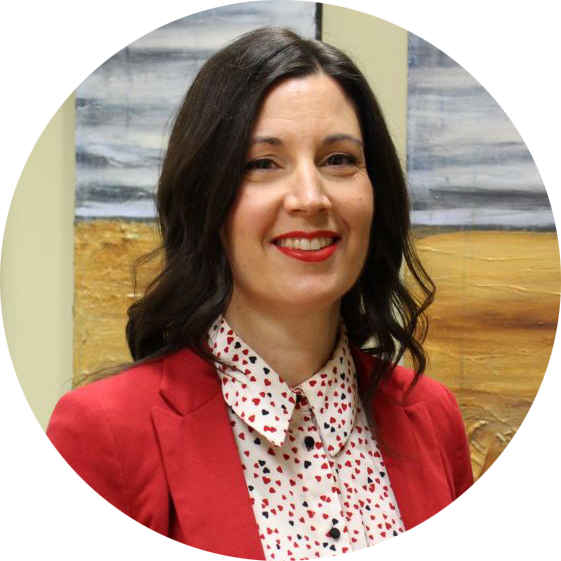
When Shay-Lee Bolton [B.Sc.(Hons.)/05, M.Sc./08, PhD/15] was earning her master’s and PhD in community health sciences, she didn’t think of herself as a leader.
Bolton uses complex data analysis methods to study mental health in populations. “I always kind of saw myself as the person running the stats,” she said.
But the assistant professor of psychiatry is now responsible for co-leading a large interdisciplinary team that provides an online mental health skills training program.
She is one of seven Rady Faculty women who received The Winnipeg Foundation Martha Donovan Women’s Leadership Development Awards in the 2023 round of funding.
Her award will fund her to attend a two-day program, Leadership Skills for Engineering and Science Faculty, at the Massachusetts Institute of Technology in Boston.
“I’m hoping the program … will allow me to recognize areas where I can improve my leadership skills and develop my strengths,” she said.
The other faculty recipients were Laura Chisick [BESS/03, B.Sc.(Med.)/10, MD/10], assistant professor of internal medicine; Renée Douville [B.Sc.(Hons.)/02, PhD/07], associate professor of pharmacology and therapeutics; Amanda Fowler-Woods [BA/04, M.Sc./09, PhD/23], assistant professor of community health sciences; and Dr. Zulma Rueda, associate professor of medical microbiology and infectious diseases and Canada Research Chair in sexually transmitted infection – resistance and control.
The student recipients were Ellie Jack [BA/13], a PhD candidate in community health sciences, and Abigail Kawadza [BN/09], a master’s student in nursing.
Marcia Anderson [MD/02], vice-dean Indigenous health, social justice and anti-racism of the Rady Faculty, has received the province’s highest honour: appointment to the Order of Manitoba.
The Cree-Anishinaabe physician served as the public health lead for Manitoba’s First Nations COVID-19 pandemic response team.
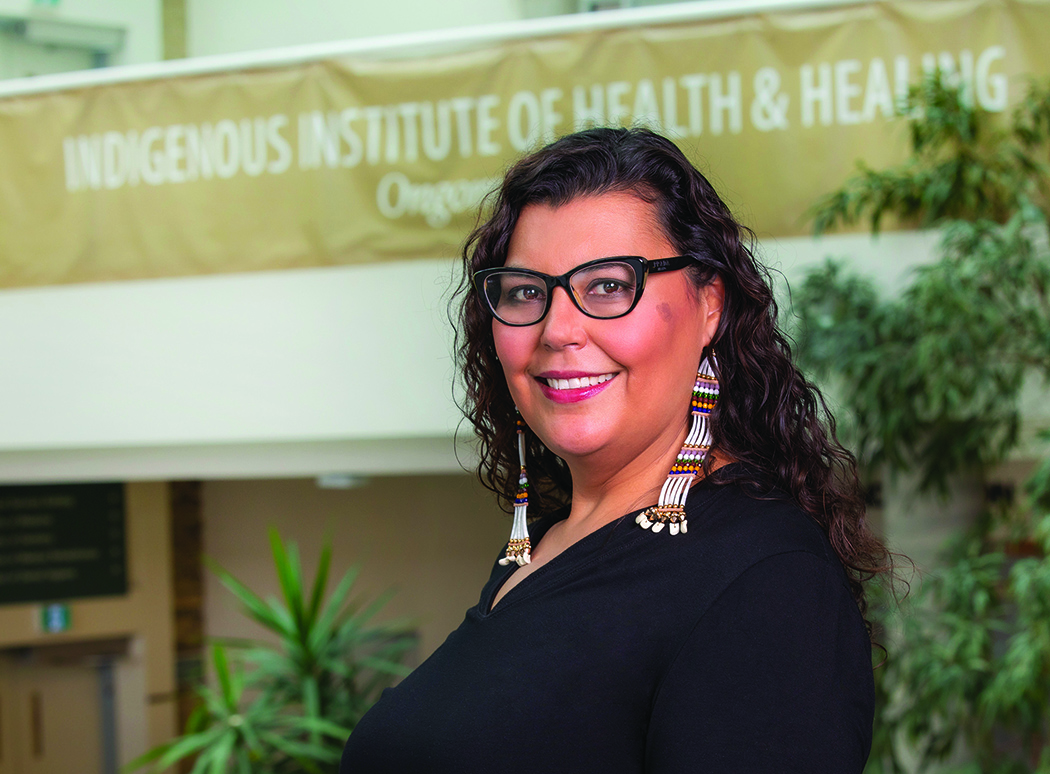
She has been credited with mitigating the impact of COVID-19 in First Nations communities through collaborative leadership, clinical excellence and strong relationships.
Anderson’s many other honours include being recognized by Doctors Manitoba as the province’s 2022 Physician of the Year.
Rady students introduce youth to health careers
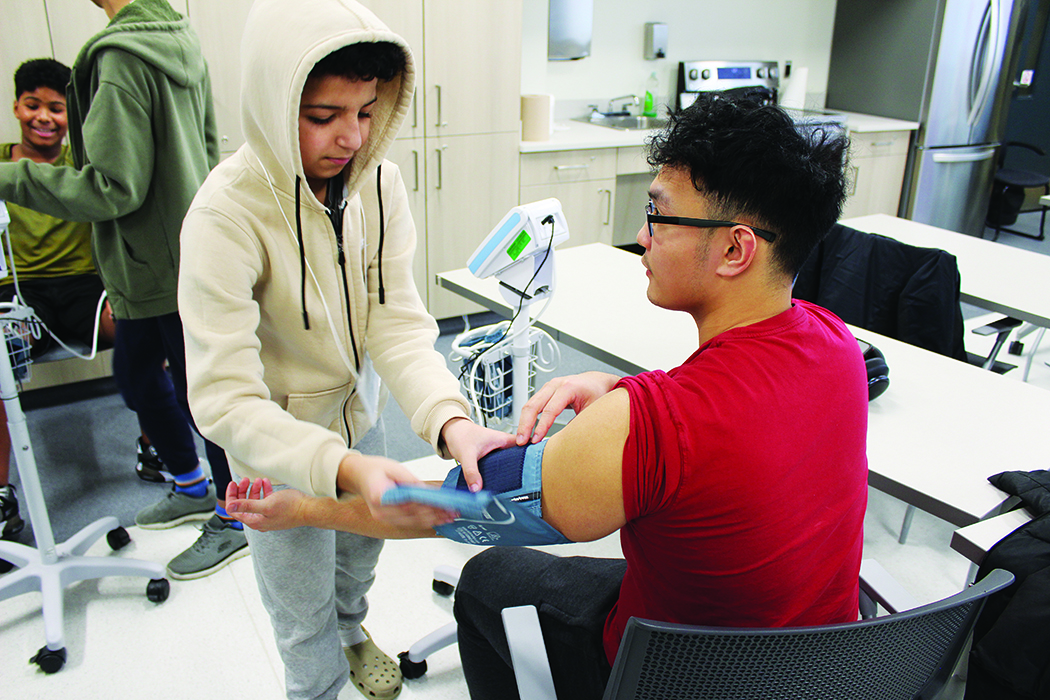
Rady Faculty student volunteers helped more than 80 youth to explore health careers during the past school year through CanU, a Winnipeg-based charitable organization.
From October to February, students in Grades 7 to 9 from 18 schools were bussed to the Bannatyne campus, where they took part in hands-on workshops led by more than 60 Rady student volunteers.
“Some of the volunteers were completing their service learning, which is a curricular requirement, but it’s also something a lot of them are passionate about,” said Karen Cook [BA/96, B.Ed./98, MBA/10], co-lead of the faculty’s Office of Community Engagement.
CanU offers “a really good opportunity for [youth] to have an out-of-school experience that can guide them to what they might want to do in the future, while interacting with people in the colleges they’re interested in,” said first-year medical student volunteer Andrei Caymo [B.Sc./23].
Santiago Mora Menendez, a Grade 7 student, enjoyed learning skills such as checking for vital signs.
“I learned my heartbeat can go faster than I thought,” Santiago said. “It was 72 bpm when not exercising and then went up to 180.”
Learners engage with Indigenous knowledge in Ecuador
Ten rehabilitation sciences, nursing and midwifery learners travelled to the Amazon region of Ecuador in February to learn from traditional healers and midwives.
The 10-day trip was organized by the Office of Interprofessional Collaboration (OIPC) in the Rady Faculty of Health Sciences, with financial support from the College of Rehabilitation Sciences Endowment Fund.
The students spent six days in the rainforest at a birthing centre run by traditional Kichwa midwives.
One of the main objectives of the trip was to recognize the importance of cultural safety in providing health care in Indigenous communities, said Lisa Mendez [BMROT/99, MOT/12], occupational therapy instructor and interprofessional practice co-ordinator with OIPC.
“I want to make sure we can link this back to our local context,” Mendez said. “Learning about traditional ways of knowing and being doesn’t have borders.”
Occupational therapy student Josée Rochon [B.Kin./20, M.Sc./23] said she was impressed with how the community cares for the land and uses plants for medicine. “It definitely broadened my understanding of different ways of knowing,” she said.
A pharmacy student also recently visited Ecuador, and there are plans for additional interprofessional student groups to make the trip, Mendez said.
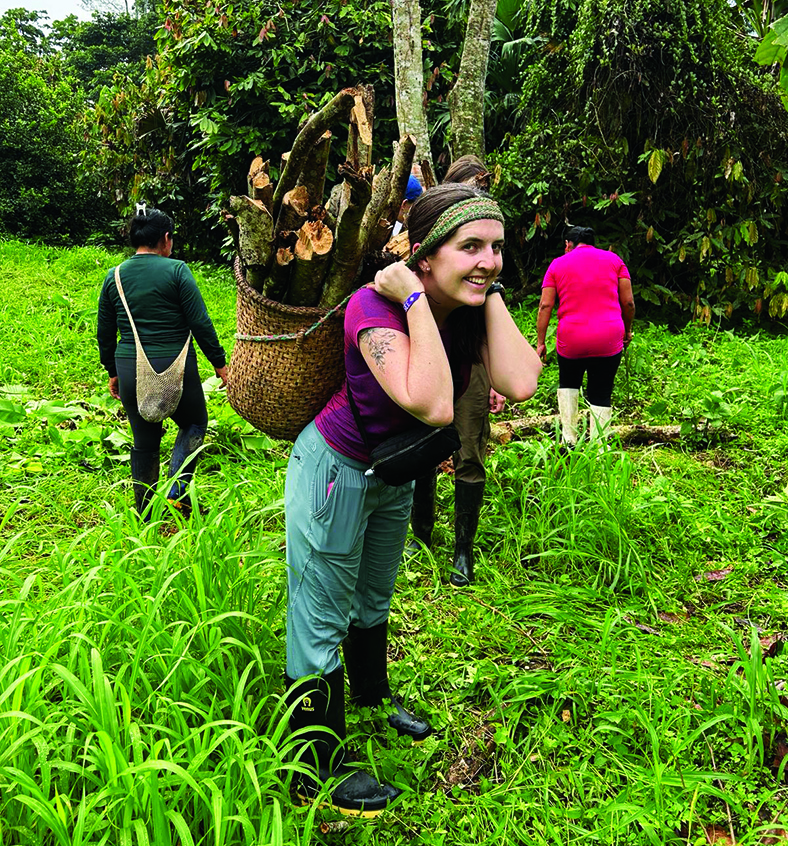
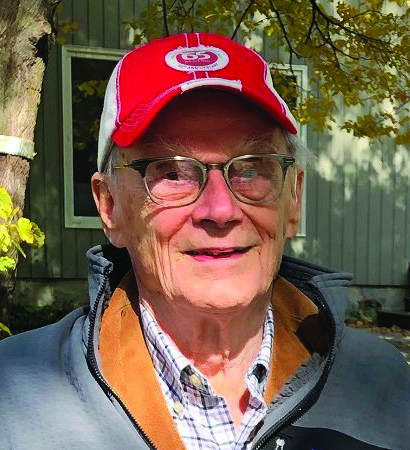 Radiologist Dr. Douglas MacEwan passed away in April at the age of 99.
Radiologist Dr. Douglas MacEwan passed away in April at the age of 99.
The Ottawa-born MacEwan was head of radiology at the Winnipeg General Hospital and chair of the radiology department at UM from 1966 to 1983. He continued to teach at the medical school until 1999.
He was deeply involved in advancing his specialty and served as president of the Radiological Society of North America.
He was also an arts champion. During the COVID-19 pandemic, he raised $124,000 for Winnipeg arts organizations.
